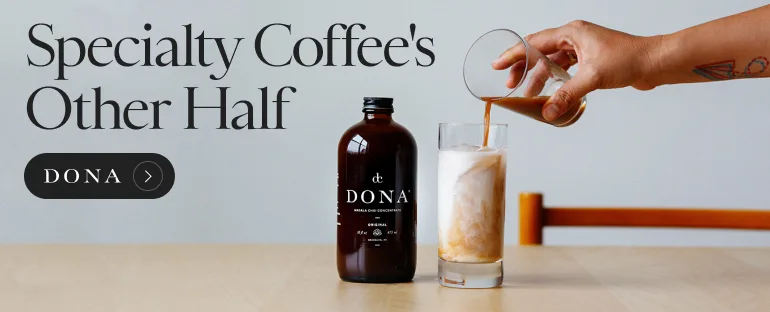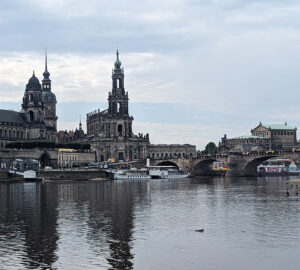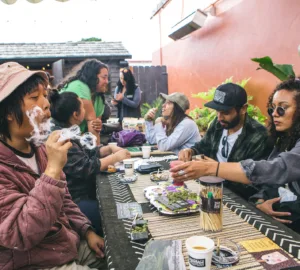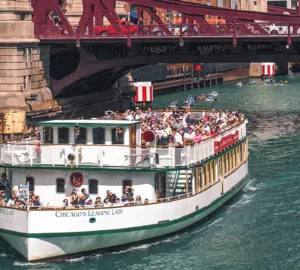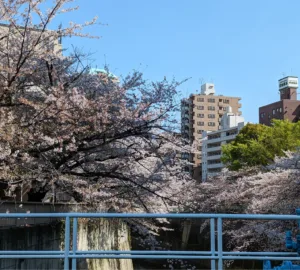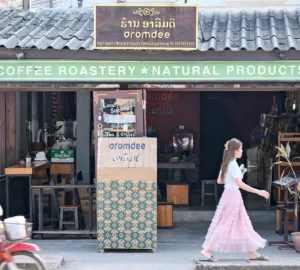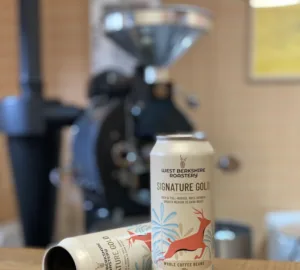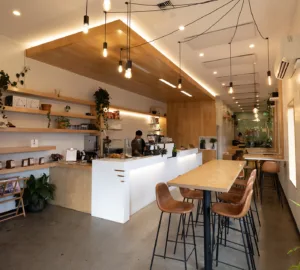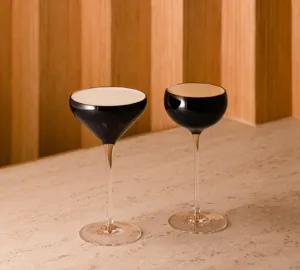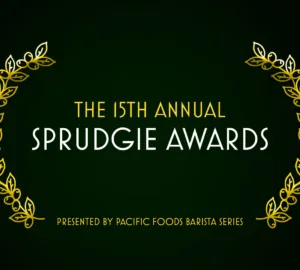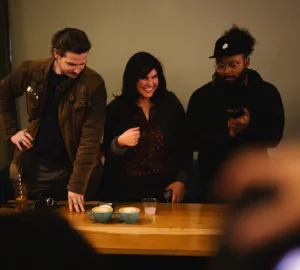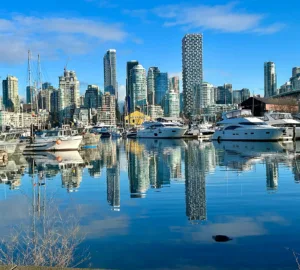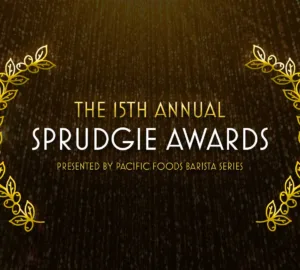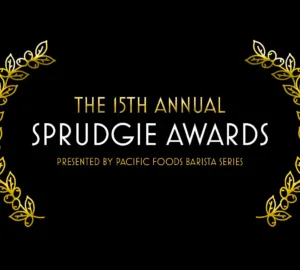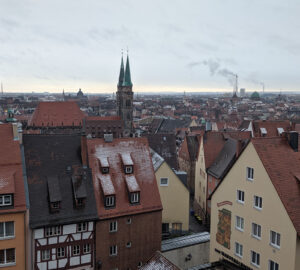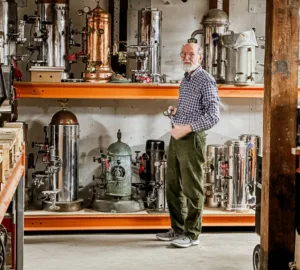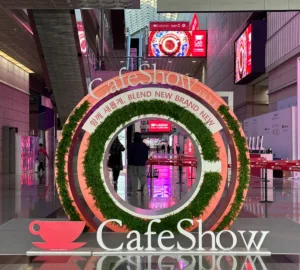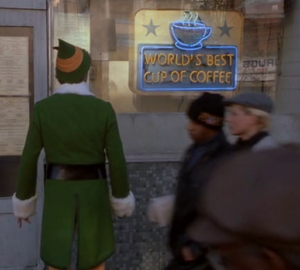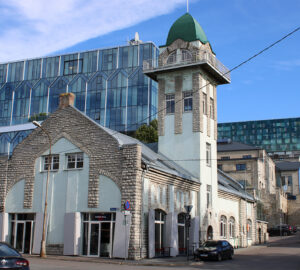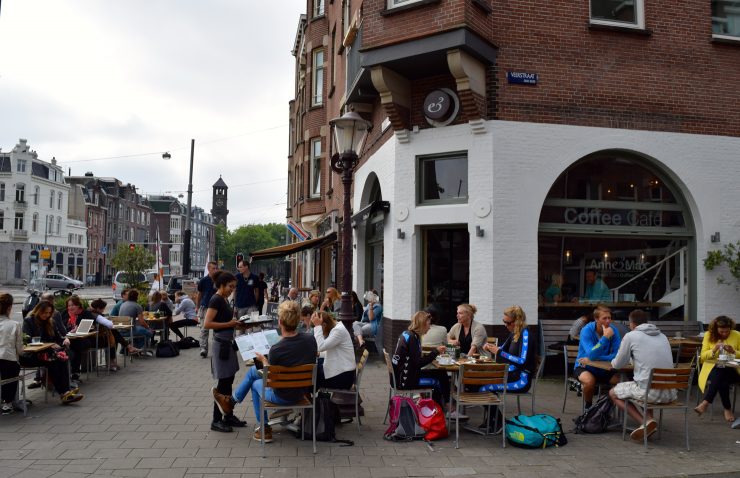
When Holland Sam boarded the small boat with 44 other people, he didn’t know if he would make it. He could swim, very well in fact, but not all the way from Turkey to Greece.
Though he’d endured winter temperatures in Moscow, when he worked in the tech department of a clothing company, that sail across the sea delivered a different kind of cold. So when three hours later, the refugees found themselves on Greek shores, Sam was jubilant. He started taking photos, sending selfie proof to his family that “I am OK.”
His parents and younger brother had moved to Damascus, Syria, after their home in Aleppo was obliterated. Having graduated from a Syrian university with a math degree, Sam, who had also worked at an import/export company in Egypt and in Dubai’s tourism industry, was not a naïve traveler. He and his companions knew that lacking papers to legally transit through some countries on their journey would necessitate avoiding public transportation. In Greece, they walked for three days to reach Macedonia. There, they rode a bus to Serbia. In Hungary, a country whose authorities have had notoriously unreceptive practices towards refugees, they were back on foot. They walked for five days, eating only a bit of food, bread primarily, and sleeping outdoors, with scorpion and snake sightings along the way. Eventually, Holland Sam—which is not his real name but the one he uses online—got in a car bound for Germany. From there, he took a train to the Netherlands. In the city of Utrecht, he entered a police station and said to an officer: “I am from Syria. This is my passport.”
Meanwhile, about 35 kilometers away, Amsterdam resident Merel Steinweg was nearing the end of her second pregnancy. With two young children, she and her husband could imagine moving out of the Dutch capital, finding a home with more room and maybe a garden or some nature nearby for the kids to play in. But as someone living in the town where she had grown up and with her parents just on the other side of the Amstel River, it wouldn’t be so easy to leave. Plus, by the time her second baby was a few months old, Steinweg could go back to work. She had already made a career for herself as a child rearing and development specialist, who not long ago began focusing on youth policy. Outspoken in a gentle way, she has an apt first name. “Merel” is the Dutch word for “blackbird,” a species common in the Netherlands and heard singing exuberantly from trees and rooftops. Her four days a week as a freelance consultant tend to be spent in her office at a community theater that rents out workspaces. Before heading there, many mornings after dropping by the daycare center, she might sit at the corner cafe and order her regular.
These are slices of life from 2015 that Sam and Steinweg shared a year later, on a June morning, over an americano and a cappuccino. The 29-year-old Aleppo native and the 31-year-old Amsterdammer, who had never met before, sat side by side, talking on benches outside the Amsterdam South branch of Anne & Max.
One of eight in the Dutch franchise, this Anne & Max, like others, has cheerful staff, an array of simply prepared dishes made from fresh, organic ingredients, and what in this country is a pretty progressive coffee program for a place that does not promote itself as such. The drink menu offers single-origin espressos, filter à la French press, bottled slow-drip by Batavia Coffee, and cascara tea.
What makes this particular branch unlike others in the chain or, for that matter, any other cafe in Amsterdam, however, is the small silver box on the bar. Once a tin holding tea, it sits back to back with a Mazzer Kony grinder and in the shade of a three-group La Marzocco Linea Classic espresso machine. On the box lid, a taped note invites patrons to drop in their fully stamped frequent-customer cards and, in so doing, to donate a resulting tenth free coffee to a pair of people who, like Sam and Steinweg, connect through the Refugee Start Force.
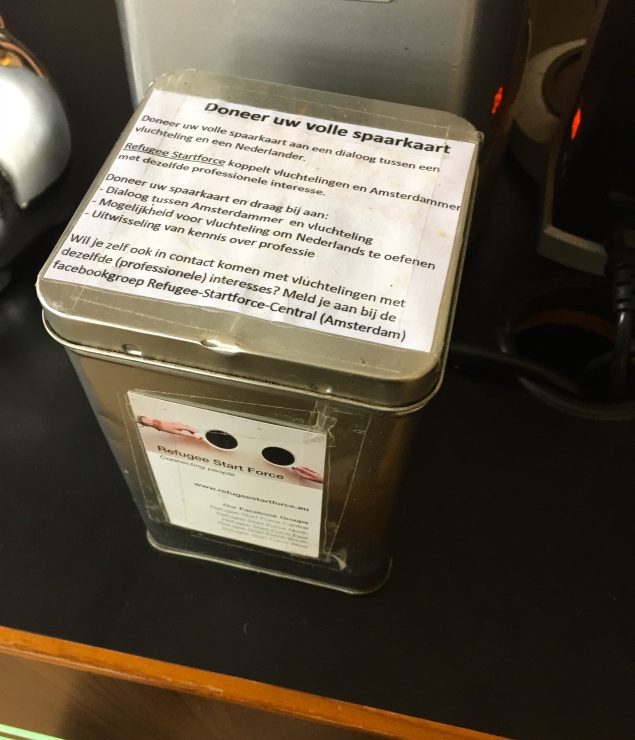
The Refugee Start Force, which began as a Facebook community page in December 2015, is meant to jump-start the lives of newcomers to the Netherlands. Its primary focus is on career development, aiming to link refugees with local residents who are in the same field or profession. More broadly, the community provides an infrastructure, online and in the flesh, to help refugees network their way to internships and jobs relevant to the experience many spent years acquiring or being educated for in their origin countries.
What catalyzed the project was the past couple years’ influx of migrants fleeing from the Syrian Civil War, now going on for a half-decade. According to the Netherlands Immigration and Naturalization Service, in 2015, 27,710 asylum applications were filed from Syria (more than double the 11,595 in 2014 and ten times the 2,673 in 2013).
What—or rather, who—made the project possible was Joost van der Hel, a dry-humored, 37-year-old lawyer who admits he hesitates to talk to the media because he would rather spend time participating in his own initiative than be the face of it. In this regard, Sprudge’s interview setting at Anne & Max—where, as he’s said on Facebook, he likes to “drink a coffee with refugees who also have a legal background”—was advantageous. It helps, too, that Van der Hel lives and works in the neighborhood, which means he also lives and works in the neighborhood of the emergency asylum center on Havenstraat. A five-minute stroll south of the cafe, the Havenstraat accommodation is one of four major facilities in Amsterdam to receive and temporarily house refugees.
Last September, when Van der Hel walked into the dull brick building, which can accommodate up to 400 people, he did not, like many other citizens, bring clothes, toiletries, or food. He brought a question.
“I just sat down and had a chat with a couple guys and said, ‘OK, how can I help you?’” recalls Van der Hel, noting that accountants, a journalist, a writer, a graphic designer, and a salesman were among the refugees he met on that visit. “They said: ‘Well, we are totally bored. We would like to do something. We have no idea, with all the information, where to start, and it’s not easy to meet Dutch people.’”
While the Netherlands has been a relatively hospitable country to refugees, both historically and as far as the Syrian crisis goes, reaching Dutch soil doesn’t automatically grant them asylum status or, subsequently, a residence permit. Asylum applicants spend, at a minimum, six months waiting for a decision. In limbo, they are bounced across reception centers around the country. To Van der Hel, it was obvious how “[during] this period they can at least look on websites, meet people with the same profession, keep stimulated.”
“I was thinking,” he remembers, “how can you match people? And all these guys told me: ‘Well, we don’t have a laptop, but we are all on Facebook. And we all have a smartphone.”’
It then dawned on Van der Hel, a business and intellectual property lawyer who makes a living negotiating between parties, that “a LinkedIn kind of approach but on Facebook” could connect newcomers and locals in a way that is technologically sophisticated enough to lead like-minded people to one another yet non-bureaucratic enough to feel casual and low-pressure.
If he had called on volunteers as mentors or language buddies, “then all the Dutch people would ask me: ‘Yeah, how much time will it cost me, and what do I need to do?’” explains Van der Hel. “So then I thought: “OK, it’s very Dutch to say: ‘Well, let’s do a koppie koffee [“cuppa coffee”].’ And that was the whole idea.”
The whole idea spawned what the Refugee Start Force Facebook community page describes as five “coffee groups,” closed group pages organizing members according to region within the Netherlands, and 15 professional expert groups, which invite members to cluster within their specific fields, such as technical, legal, or medical. The Central group, in which Amsterdam falls, is the largest, with nearly 7,000 members at the time of writing. The groups also coordinate “coffee with a company” events, during which corporations and institutes launch meet-and-greets, premises tours, and talks for refugees.
Anne & Max South began facilitating free drinks for the Refugee Start Force in January, thanks to Steinweg, who around the time had joined the Facebook community. Like Van der Hel, she wanted to help welcome her new neighbors at the Havenstraat asylum center. She remembers speaking with cafe manager Jasmijn van den Thillart, asking: “‘Well, can we organize something? Because there’s so many men there, and I know how much they would like to meet Dutch people, which could be perfectly combined with a good coffee.’”
Little persuading was needed. Besides the tin now holding customers’ suspended coffees, the manager decided to offer two free drinks a day in the name of the project. It’s as simple as a pair telling the staff that they are on a Refugee Start Force coffee date. Van den Thillart enjoys watching old and new Amsterdammers interact.
“They have a conversation or they play chess or they watch something on the iPad,” she says. “I think it’s a great initiative.”
The sentiment is echoed by Menno Simons, founder of Bocca, the Dutch roasting company that supplies Anne & Max with its various filter and espresso beans, including a personalized franchise blend.
“We think it is a great initiative,” Simons tells Sprudge via email. “We are living in a multicultural society in Holland. If people are in need of help or if they feel like having a conversation, coffee is a great facilitator. It is embedded in our own culture, but it also reminds us of the spirit of the Ethiopian coffee ceremony, where friends, family, [and even sometimes] enemies discuss issues or celebrate life.”
By the end of their coffee date, Sam and Steinweg were talking less about the past than the present. Sam related balancing Dutch language and integration classes with job-seeking, his fierce loyalty to AFC Ajax, clubbing with some new international friends, and a preference for beer over coffee—though appreciation of the latter in overcoming too much of the former the next day. Steinweg revealed that, despite her growing family, she had no plans to move away from Amsterdam any time soon. After recently hosting a community sidewalk bench-gathering, she was reminded of how many unexpected interactions with so many likable people that her hometown is conducive to.
Before parting ways that morning, Steinweg invited Sam to see her office in the Teatro Munganga. It would give him the chance to check out what today doubles as a theater and a venue with rentable offices, including room for visitors. The reinvention of a culturally significant building as a combined-purpose spot with shared workspace has been a trend in Amsterdam. Sam—Holland Sam—liked the idea. Speaking in simple Dutch, the pair took off together, walking north.
Karina Hof is a Sprudge staff writer based in Amsterdam. Read more Karina Hof on Sprudge.













